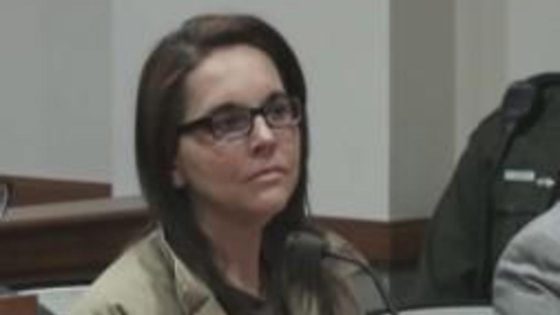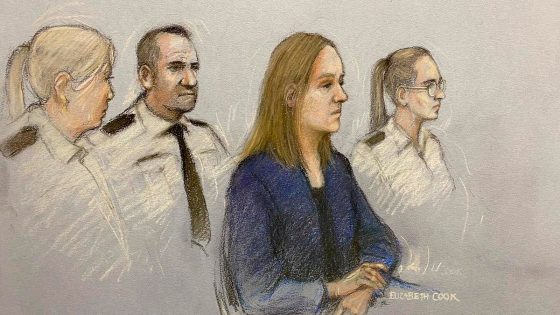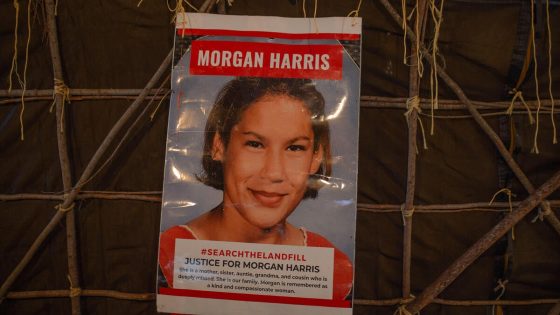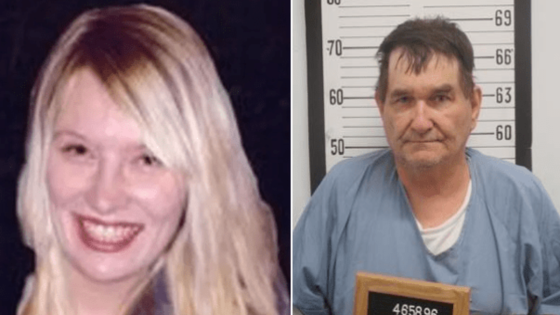A chilling case unfolded in Raleigh County, West Virginia, where the story of Natalie Cochran—once a trusted pharmacist—took a harrowing turn. On March 3, 2023, she was handed a life sentence without the possibility of parole after being convicted of poisoning her husband, Michael Cochran, with insulin. This grotesque crime, revealing a dark web of deceit and betrayal, left many in the community in disbelief.
- West Virginia pharmacist convicted of murder
- Sentenced to life in prison without parole
- Poisoned husband to hide Ponzi scheme
- Advanced forensic testing revealed homicide
- Previously sentenced for wire fraud and money laundering
- Recent U.S. cases of poisoning spouses
Natalie and Michael were married in 2011, and their life together seemed normal at first glance. However, the façade began to crumble as prosecutors revealed that beneath this domestic tranquility lurked a $2 million Ponzi scheme. This fraudulent operation, which Natalie’s actions sought to conceal, was carried out between 2017 and 2019 in what authorities described as a desperate attempt to keep her husband’s suspicions at bay. As logical questions arose regarding finances, authorities allege that she turned to the most dreadful of solutions.
Michael Cochran’s mysterious death in February 2019 initially bewildered investigators. The story took a significant turn when Natalie was first indicted for murder on November 19, 2021. However, just when it seemed that justice was moving forward, the charge was briefly dropped so that investigators could exhume Michael’s body for further forensic examination. Renowned forensic pathologist Dr. Paul Urbie conducted tests that revealed nonprescribed insulin was injected into Michael’s system, ultimately determining that his death was a homicide and not a natural occurrence.
Cochran’s defense painted her as a victim rather than a perpetrator, imploring the jury to consider her character and the life they shared. Yet, the jurors were unconvinced by these pleas. “The evidence presented was clear and undeniable,” a representative from the prosecution remarked, underscoring the brutal truth that this was not just a case of death; it was a calculated act of murder motivated by greed.
The saga delved even deeper when it was revealed that Natalie had previously been sentenced to 11 years in prison for her role in the Ponzi scheme. This earlier conviction added layers to her character, showing a pattern of deceit that culminated in the ultimate betrayal of her marriage. Federal prosecutors had previously established that she had falsely convinced investors she had ownership stakes in seemingly successful businesses, siphoning their money into personal luxuries instead. From a classic 1965 Shelby Cobra to luxurious jewelry, the life she led was starkly juxtaposed against the tragedy she instigated.
As the dust settles on this tragic narrative, a broader question arises: how many more instances of domestic violence rooted in deceit lurk beneath the surface of seemingly normal relationships? In recent months, there has been a disturbing uptick in instances where partners have resorted to poisoning as a method of murder, reflecting a society grappling with hidden darkness. Just months ago, a North Dakota woman received a lengthy prison sentence for poisoning her boyfriend, while a medical professional faced charges for allegedly committing a similar crime against his wife.
Natalie Cochran’s conviction may mark the end of this chapter in a horrifying tale, but it leaves a grim imprint on the community. The echo of betrayal and sorrow lingers as residents ponder the depths of human deception and the price of betrayal. For the survivors of Michael Cochran, the journey toward healing and understanding might be a long and painful one, yet the hope for justice delivered is a small consolation in the wake of such a devastating loss.
As the legal proceedings conclude, further developments could arise, revealing more about motives and perhaps shedding light on the personal struggles that led to such horrific actions. For now, the implications of this case will resonate, serving as a chilling reminder of how quickly trust can unravel in the face of desperation.

































